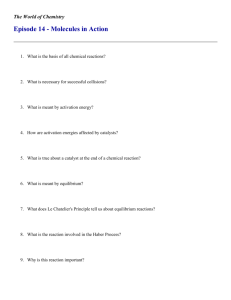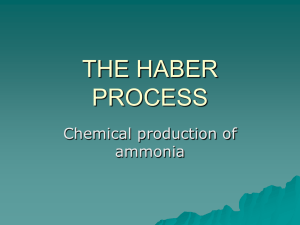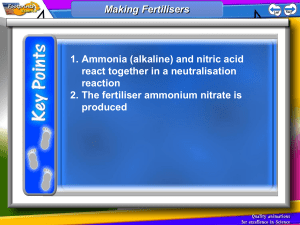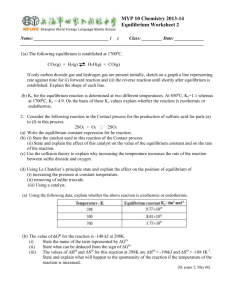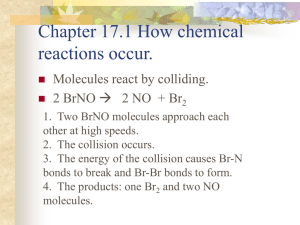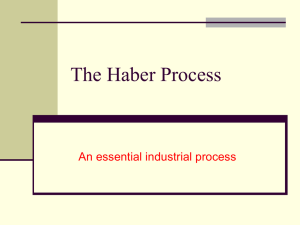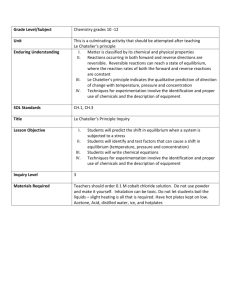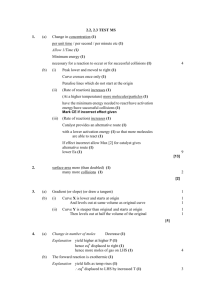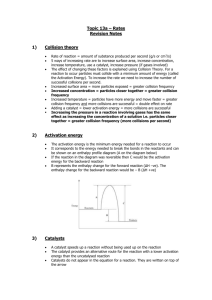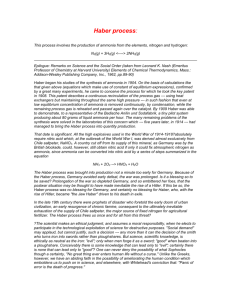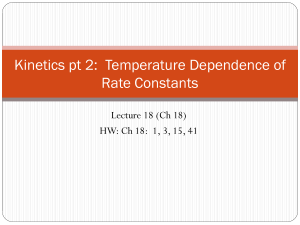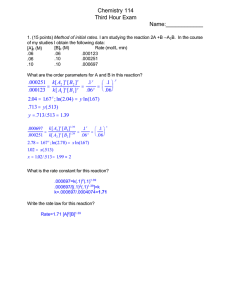Episode 14 - Molecules in Action
advertisement
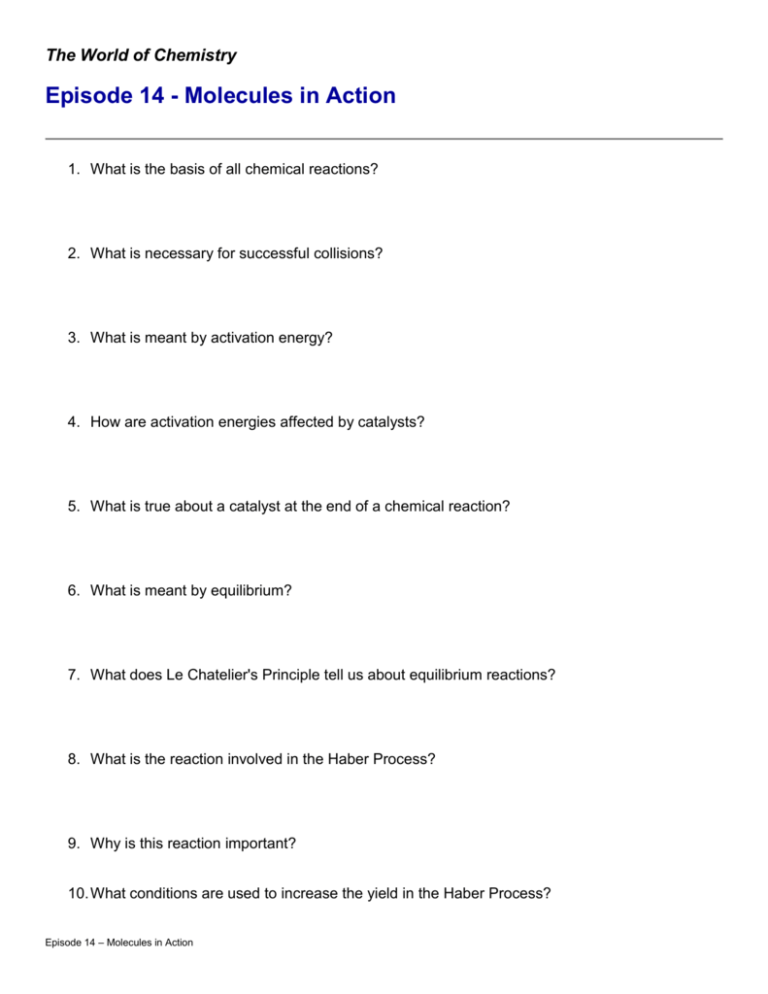
The World of Chemistry Episode 14 - Molecules in Action 1. What is the basis of all chemical reactions? 2. What is necessary for successful collisions? 3. What is meant by activation energy? 4. How are activation energies affected by catalysts? 5. What is true about a catalyst at the end of a chemical reaction? 6. What is meant by equilibrium? 7. What does Le Chatelier's Principle tell us about equilibrium reactions? 8. What is the reaction involved in the Haber Process? 9. Why is this reaction important? 10. What conditions are used to increase the yield in the Haber Process? Episode 14 – Molecules in Action Answer Key 1. What is the basis of all chemical reactions? Collisions of particles that have the minimum energy to react. 2. What is necessary for successful collisions? The collisions must be of sufficient energy to react. 3. What is meant by activation energy? The minimum amount of energy needed to bring about a reaction. 4. How are activation energies affected by catalysts? They are lowered. 5. What is true about a catalyst at the end of a chemical reaction? It remains unchanged. 6. What is meant by equilibrium? Two opposing reactions that occur at equal rates. 7. What does Le Chatelier's Principle tell us about equilibrium reactions? The reaction may be “shifte”' when stresses are applied to the system. 8. What is the reaction involved in the Haber Process? 2 H2 + N2 2 NH3 9. Why is this reaction important? Ammonia is an important starting material in the manufacture of fertilizers and explosives. 10. What conditions are used to increase the yield in the Haber Process? The temperature was kept relatively low, the pressure was kept high, and the ammonia was removed as it was produced. Episode 14 – Molecules in Action
